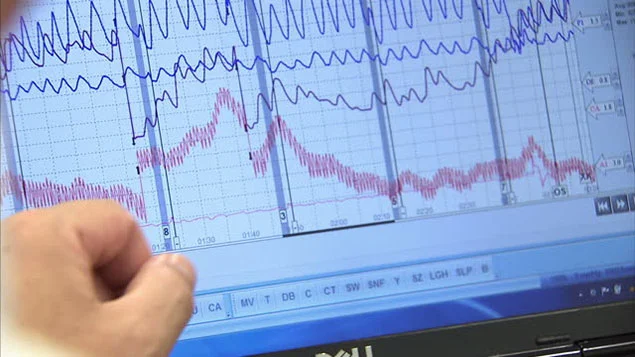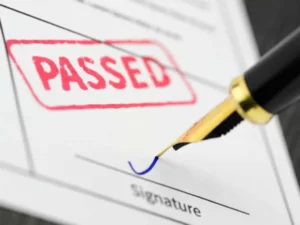When it comes to ensuring security and safety, polygraph exams have become a vital tool in Israel. Employers in a variety of sectors, from government agencies to private businesses, use polygraph exams to vet potential employees and monitor current staff. The exams are designed to assess the truthfulness of an individual’s responses to questions related to a particular subject.
In Israel, the use of polygraph exams is particularly common in the fields of law enforcement, intelligence, and national security. For example, the Israel Security Agency (ISA) routinely administers polygraph exams to individuals who are applying for positions related to national security. These exams are intended to ensure that individuals who may have access to sensitive information are trustworthy and reliable.

Polygraph exams are also used by private companies in Israel to screen employees who may have access to valuable or sensitive information. For example, a company that handles financial data or trade secrets may require employees to undergo polygraph exams to verify their trustworthiness and prevent data breaches.
If you have failed a polygraph exam in Israel, it can be a stressful and confusing experience. You may be facing consequences such as loss of employment or security clearance, and you may feel like there is no way to appeal the decision. However, there is a process in place that allows individuals to appeal a failed polygraph exam in Israel.
The purpose of this article is to provide you with a comprehensive understanding of the appeal process after failing a polygraph exam in Israel. We will cover the necessary steps you need to take to file an appeal, as well as the requirements you need to meet. We will also provide you with tips on how to prepare for the appeal process.
The Polygraph Exam Process in Israel
The exam will typically begin with a pre-test interview. During this interview, the examiner will explain the purpose of the exam and ask you questions to establish a baseline for your physiological responses. This baseline is established by asking you a series of neutral questions, such as your name and date of birth. The examiner will also explain the specific questions that will be asked during the exam.
The exam itself typically lasts between one and three hours. During the exam, the examiner will ask you a series of relevant questions related to the subject of the exam. These questions may be repeated several times, and the examiner will monitor your physiological responses to each question. The examiner will record your responses to each question and use these recordings to analyze your truthfulness.
After the exam, the examiner will analyze the recordings and make a determination as to whether or not you were truthful in your responses. If you are found to be truthful, the exam is considered a pass. If you are found to be deceptive, the exam is considered a fail.
It is important to note that the accuracy of polygraph exams is a subject of ongoing debate. While some organizations in Israel consider polygraph exams to be a reliable tool for assessing truthfulness, others are more skeptical.
Common reasons for failing a polygraph exam

If you have recently taken a polygraph exam in Israel and received a failed result, you may be wondering what went wrong. While the exact reasons for a failed exam may vary depending on the individual and the specific circumstances of the exam, there are some common factors.
- Firstly, nervousness or anxiety can often affect the accuracy of a polygraph exam. It is natural to feel nervous during an exam, but if these feelings are particularly intense, they can affect your physiological responses and potentially lead to a false positive result. Additionally, if you are taking medication or have consumed drugs or alcohol prior to the exam, this can also affect your physiological responses and lead to a false positive.
- Another common reason for failing a polygraph exam is a lack of clarity or understanding of the questions being asked. If the individual is unsure of the meaning of a question or does not fully understand what is being asked, they may provide an inaccurate response, which can result in a failed exam.
- Thirdly, if you have a medical condition or physical ailment that affects your physiological responses, this can also contribute to a failed result. For example, if you have a heart condition or respiratory problem, this can affect the accuracy of the exam.
- Finally, a failed polygraph exam may be the result of deliberate deception. Individuals may attempt to manipulate their physiological responses to hide the truth or provide false information. This can be difficult to detect, but experienced examiners are trained to recognize signs of deception.
Consequences of failing a polygraph exam in Israel
Failing a polygraph exam in Israel can have significant consequences, particularly in the areas of employment and national security. The most common reason for taking a polygraph exam in Israel is for security clearance. Individuals who fail a polygraph exam may be deemed unsuitable for security clearance, which can result in the loss of their job or a job offer. This can be particularly problematic for individuals who work in government or military positions where security clearance is required.
If you fail a polygraph exam during a job application process, the employer has the right to revoke your job offer. This is particularly true if the job involves sensitive or high-risk work, where trust and reliability are essential. Even if the job offer is not revoked, failing the exam may lead to an investigation into your background or even disciplinary action by the employer.
Additionally, individuals who fail a polygraph exam in Israel may face difficulties obtaining a visa or immigration status. This is particularly true for individuals who are seeking to immigrate to Israel and are required to undergo a polygraph exam as part of the visa application process.
It’s also worth noting that failing a polygraph exam can have psychological and emotional consequences. It can be an embarrassing and stressful experience, particularly if the test was related to a job you really wanted or if the failure was unexpected. It can also damage your reputation and make it difficult to obtain similar jobs in the future.
Statistics on Failed Polygraph Exams in Israel
There is limited publicly available data on the number of polygraph exams administered in Israel and the percentage of individuals who fail these exams. However, based on anecdotal evidence and reports from various government agencies and law enforcement organizations, it is estimated that a significant number of individuals fail polygraph exams in Israel each year.
Overview of the appeal process in Israel

Firstly, it’s important to note that there is no official appeal process for a failed polygraph exam in Israel. This means that the appeal process is not regulated by any official body, and there are no specific guidelines or procedures that must be followed.
However, there are a few steps that you can take if you believe that the results of your polygraph exam were incorrect or unfair.
The steps involve submitting a request for reconsideration to the Israeli Security Agency (ISA), the agency responsible for conducting polygraph exams in Israel, or the organization that conducted your polygraph test.
The ISA will review your request for reconsideration and may request that you undergo a second polygraph exam. It is important to note that the second polygraph exam will be conducted by a different examiner than the first. If you fail the second exam, the results of the first exam will usually stand, and the chances for further appeal will likely be small.
In some cases, it may be possible to challenge the results of a polygraph exam in court. This can be a complex and expensive process, and it’s important to seek legal advice if you decide to go down this route.
How to prepare for the appeal process
- Analyze the initial examination: analyze the initial examination report and identify the points you disagree with or where you think the examiner made mistakes.
- Address the flaws in the initial examination: If you identify any flaws in the initial examination, you can address them in the appeal process. You can challenge the validity of the polygraph exam results if you have evidence that the test was conducted improperly or if the examiner did not follow the proper procedures.
- Stay organized: Keep track of all the documentation and evidence related to your case. This will help you easily reference any information during the appeal hearing.
- Stay focused and remain calm: Appealing a polygraph exam can be a stressful and emotional experience. It is important to stay focused and remain calm during the process.
- Be patient: The appeal process can take time, so it’s important to be patient and not rush the process.
Possible outcomes of the appeal process

If you fail a security clearance polygraph exam in Israel and choose to appeal the decision, it’s essential to understand the possible outcomes of the appeal process.
Firstly, if your appeal is successful, you will either be asked to undergo another polygraph exam or receive your security clearance and be allowed to continue working in your desired position. This outcome is possible if you can successfully prove that the initial decision was unjustified and you are not a security risk.
However, if your appeal is unsuccessful, you will not be granted a security clearance, and you may lose your job or be transferred to another position. It’s crucial to remember that an appeal is not a guarantee of a successful outcome, and the decision ultimately lies with the Israeli security agency.
It’s also important to note that even if you win your appeal and receive a security clearance, you may still be subject to future polygraph exams and periodic security checks.
Factors that may influence the outcome of an appeal (legal proceedings)
There are several factors that can influence the outcome of your appeal in court and in legal proceedings. Here are a few key considerations:
- Evidence: The strength and quality of the evidence presented in support of your appeal can have a significant impact on the outcome. For example, if you can present new and compelling evidence that was not available during the initial test.
- Expert testimony: Expert testimony from a lie detection specialist can also influence the outcome of your appeal. This can help provide a more detailed understanding of the test results and what may have caused the failure.
- Timing: Timing is also critical, as appeals must be filed within a specific time frame. If you miss this deadline, you may be unable to file an appeal.
- Representation: Having a knowledgeable and experienced representative on your side can significantly increase your chances of success. An experienced representative can guide you through the process while protecting your rights and interests.
- Past history: Your prior history, including any previous convictions or disciplinary actions, may also have an impact on the outcome of your appeal.
Conclusion
As you may have concluded from this article, there are numerous factors and considerations to take into account when appealing a failed polygraph result. Before filing an appeal, carefully consider your options and seek advice from experts in the field. This will assist you in determining whether an appeal is likely to be successful and whether it is the best course of action for you.
While there is no guarantee that an appeal will be successful, it is critical to understand the process, be prepared, and consider all of the factors that may influence the outcome. With this information, you’ll be in a better position to make informed decisions about your appeal and work toward a favourable outcome.

